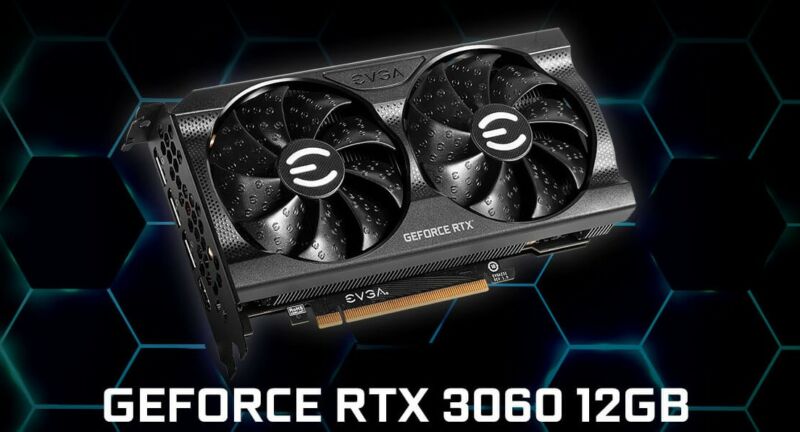
Enlarge / The EVGA RTX 3060, as posed in front of some sort of high-tech honeycomb array. (credit: EVGA / Nvidia)
Both Nvidia and AMD have made changes to their gaming GPU lineups in an effort to make them less appealing to cryptocurrency miners, including releasing mining-specific GPU models and making entry-level GPUs with specs that aren't good enough for mining. One of the most significant changes came in mid-2021, when Nvidia released "Lite Hash Rate" (LHR) versions of its RTX 3000-series GPUs that halved their performance when mining Ethereum or similar coins but didn't affect their gaming performance.
Cryptocurrency miners have tried to circumvent the LHR limitations in a bunch of ways since then, including by using non-LHR drivers that Nvidia leaked (oops!) and flashing the BIOSes from 3090-series cards onto 3080-series cards to bump up the hash-rate limit. And earlier this week, a hacker by the name of Sergey released an "Nvidia RTX LHR v2 Unlocker" that promised to remove the hash-rate limits on most Nvidia cards using a combination of BIOS updates and specially modified drivers.
Surprising no one, the sketchy drivers with the too-good-to-be-true performance promises turned out to be full of viruses. An extensive report shows that the software package modifies Windows Powershell policies, deletes and creates new files in system directories, and causes abnormally high CPU usage, among other things.
Read 2 remaining paragraphs | Comments
https://ift.tt/0psqnLa
Comments
Post a Comment